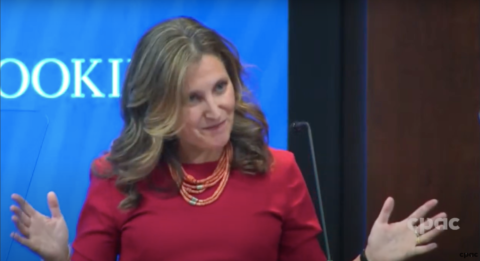Germany is, yet again, convulsed with political unrest as politicians react strongly to foreign interference in German affairs by … dun-dun-duuuuuun … Elon Musk:
German democracy, which has existed undeterred since 1949 but is somehow always shaken to its foundations whenever anybody sings the wrong song or holds a televised debate with the wrong person, is once again on life support.
Christian Lindner, head of the market-liberal Free Democrats, did much to trigger the present catastrophe on 1 December, when said that the Free Republic should “dare more Milei and more Musk“. Because there is little distinction between praising Milei and Musk and demanding the return of National Socialism, there ensued a brief period of establishment hyperventilation.
Less than a week later, CDU chief and probable future German chancellor Friedrich Merz, did his part to denounce Lindner’s political wrongthink in a statement to Deutschlandfunk:
So neither the Argentinian president nor, how shall I put it, the American entrepreneur Elon Musk – let’s put it plainly – are role models for German politics in my view. I don’t see where we can find similarities in German politics. What Christian Lindner meant will probably remain his secret.
The next day, Merz repeated the same denunciations, only more harshly, explaining to one of our extremely adult and far-sighted pantsuit talkshow hosts that “To be honest, I was completely appalled that Christian Lindner made that comparison“. Milei, Merz said, is “really trampling on the people there”.
Yesterday, all of this came to the notice of the (honestly rather tiresome) influencer Naomi Seibt, who posted a video statement to X rehearsing all of this old news to her largely American audience:
Elon Musk then brought down the hammer on the German democratic order, retweeting Seibt’s video and remarking that “Only the AfD can save Germany“.
Today a lot of very important and influential people got out of bed and took to their keyboards to denounce Musk’s election interference. His statement might be illegal, at any rate it is very likely fascist and certainly it is beyond the pale for an American to voice an opinion about German politics. Germans absolutely never, ever, utter the slightest word about American politics and certainly would never advance negative opinions about the American president in the middle of an election campaign. Our Foreign Office would never try to fact-check an American presidential debate! Our journalists would never depict President Donald Trump dressed as a Ku Klux Klan member or offering the Hitler salute or decapitating the Statue of Liberty! That’s just not done!
Like a great stream of green diarrhoea, the outrage is pouring fourth. Matthias Gebauer, who writes for Der Spiegel, observes that “Elon Musk … is openly promoting the AfD” and concludes that “Putin is not the only one who loves this party”. Erik Marquardt, head of the Green faction in the European Parliament, says that “The EU Commission and EU member states should no longer stand by and watch as billionaires misuse media and algorithms to influence elections and strengthen and normalise right-wing extremists”. This “is an attack on democracy”, and “has nothing to do with freedom of expression”. Dennis Radtke, CDU representative in the European Parliament, concludes that “Musk … is declaring war on democracy” and that “the man is a menace”. We are also under siege via “interference from Putin”; “the erosion of our democracy is being fuelled from both within and without”. Julian Röpcke, who writes for BILD, believes that “This is interference in the German election campaign by a tech billionaire who uses algorithms to decide what gets heard”. If Germany does not “respond with penalties, there will be no help for our eroding democracy”.














